Star Trek: Discovery Review — Strange New World
Is Star Trek: Discovery on CBS All Access worth your time? Probably. Does it honor the legacy of Star Trek? Maybe.
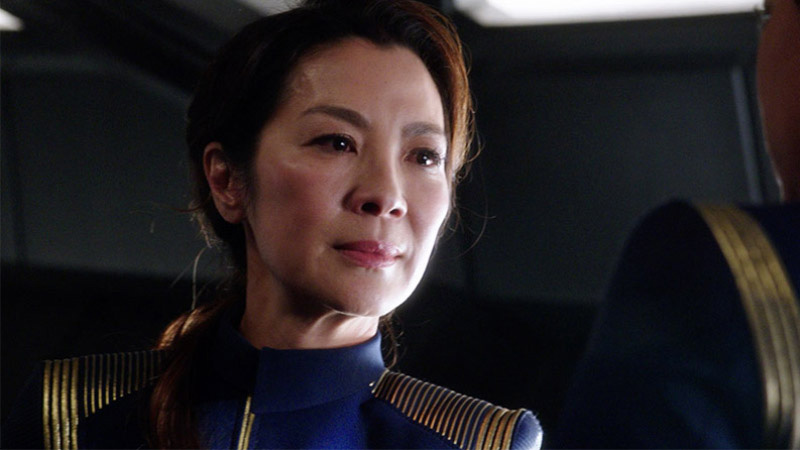
I came away from the premiere of Star Trek: Discovery with two polarizing feelings. First: As a sci-fi/action drama, Star Trek: Discovery is nearly unparalleled. The story is intense, the writing is engaging, the cinematography is gorgeous, the special effects are top-notch, the cast is convincing and the pacing is brisk.
Second: As a Star Trek show, Discovery is treading some very uncertain waters, and I’m not sure what to think yet.
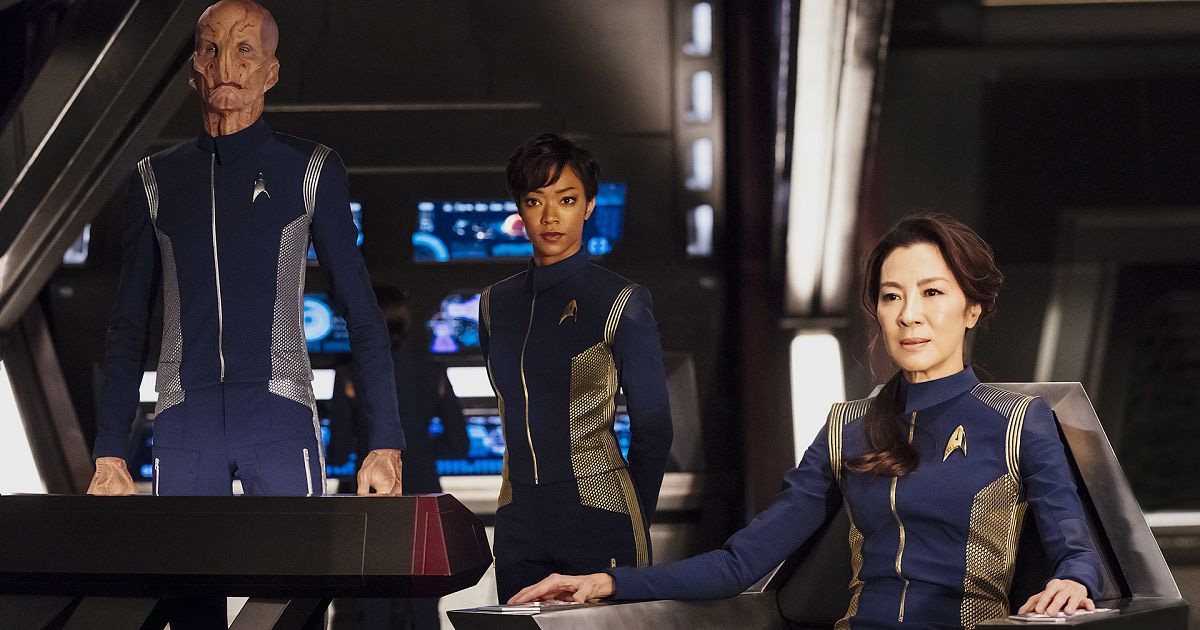
Star Trek: Discovery has a complicated history — it premiered almost 10 months after its intended airdate — and a lot of pressure riding on it. Not only is Star Trek: Discovery the first weekly Trek show since Enterprise ended in 2005; it’s also the first Trek show to air exclusively on a streaming service (CBS All Access in the States; Netflix elsewhere).
The show has to reassure two (or three) generations of older fans that the 23rd-century Federation is still something they want to follow, and also endear itself to new viewers, who are probably just setting foot into sci-fi prestige TV for the first time.
Based on the first two episodes, is Star Trek: Discovery worth your time? Probably. Will it herald a triumphant return of Star Trek to the small screen? Possibly. Does it honor the legacy of the six shows that inspired it? That’s a much harder question to answer.
The story so far
For those who haven’t watched the premiere yet, Star Trek: Discovery subverts expectations in that the titular ship is wholly absent from the first two episodes (“The Vulcan Hello” and “Battle at the Binary Stars”). Instead, the action centers on Cmdr. Michael Burnham (Sonequa Martin-Green) and her commanding officer, Capt. Philippa Georgiou (Michelle Yeoh) aboard the USS Shenzhou.
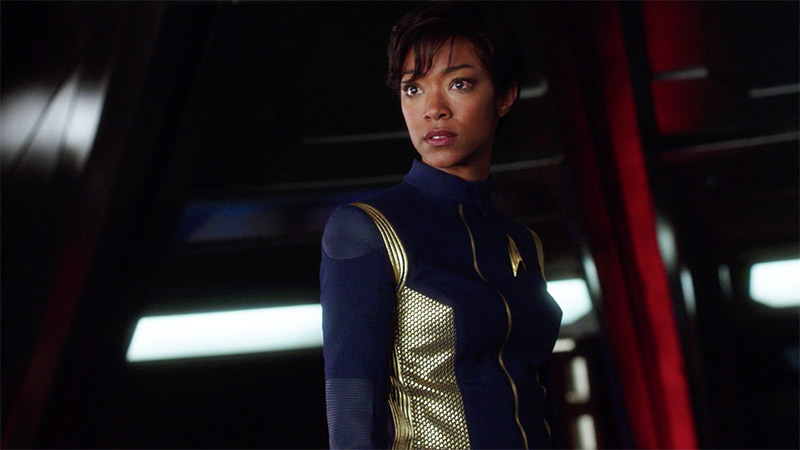
Right from the start, the show gives us some familiar elements, and some that feel unfamiliar. The bond between Burnham and Georgiou is apparent right from the first scene, in which the two traverse a desert on a drought-stricken world, bantering and trying to find water. The outgoing Burnham and the more reserved Georgiou have clearly worked together for a long time, and their relationship feels as genuine and endearing as any of the great captains and their XOs.
Sign up to get the BEST of Tom's Guide direct to your inbox.
Get instant access to breaking news, the hottest reviews, great deals and helpful tips.
What’s not so familiar is that the Shenzhou isn’t a Federation flagship on a highly visible mission. It’s not the Enterprise, leading the charge into the unknown; it’s not even Deep Space Nine, guarding a strategic objective. It’s just a run-of-the-mill exploration vessel, already outdated well before the series begins.

Georgiou is competent, and Burnham is able to execute her orders dutifully, but it’s clear that neither one is the absolute best the Federation has to offer, the former being too by-the-book and the latter being too impulsive. Those are character traits that have serious consequences by the end of the first two episodes.
Focusing on — for lack of a better word — average Federation officers rather than remarkable impresarios like Kirk and Spock has advantages, though. Right from the start, Discovery brings a more down-to-earth, workaday sensibility to the proceedings.
As such, when Georgiou and Burnham find themselves on the front lines of a possible full-scale war between the Federation and the Klingon Empire, the audience isn’t immediately sure that they’re the right officers for the job. We aren’t at all sure that they’ll be able to talk or fight their way out of this one, like Picard, Janeway or even Archer might. Indeed, “Battle at the Binary Stars” ends with the characters, the ship and even the galactic balance of power in very different situations than they were in at the beginning of “The Vulcan Hello.”
The show takes place about 100 years after Enterprise (Archer, T’Pol, Tucker), but about 10 years before the original series (Kirk, Spock, McCoy). Without going into extensive plot details, the premiere of Star Trek: Discovery goes something like this: Georgiou and Burnham take the Shenzhou to investigate a mysterious object on the borders of Federation space. There, they discover that Klingon forces — with whom the Federation has maintained an uneasy truce for almost 100 years — are massing under a charismatic, zealous warlord named T’Kuvma (Chris Obi). Unable to contact T’Kuvma, the Shenzhou stands in an uneasy stalemate with the superior Klingon ship — and Burnham’s proposal to deal with the situation could lead either to a more stable peace, or to total war.
The Klingon problem
Let’s take a moment here to talk about the Klingons, who easily embody the disconnect between Discovery as a gripping space opera and Discovery as a Star Trek successor. In Discovery, the Klingons are ugly, hairless creatures with facial deformities, gray-black skin and ornate jewelry or armor. Their flagship is festooned with elaborate coffins for warriors who have fallen in battle; its interior is bedecked with elaborate carvings, torches and tiered platforms. Imagine if Tolkien’s orcs could build spaceships, and that’s pretty much what Discovery’s reimagined Klingons look like.
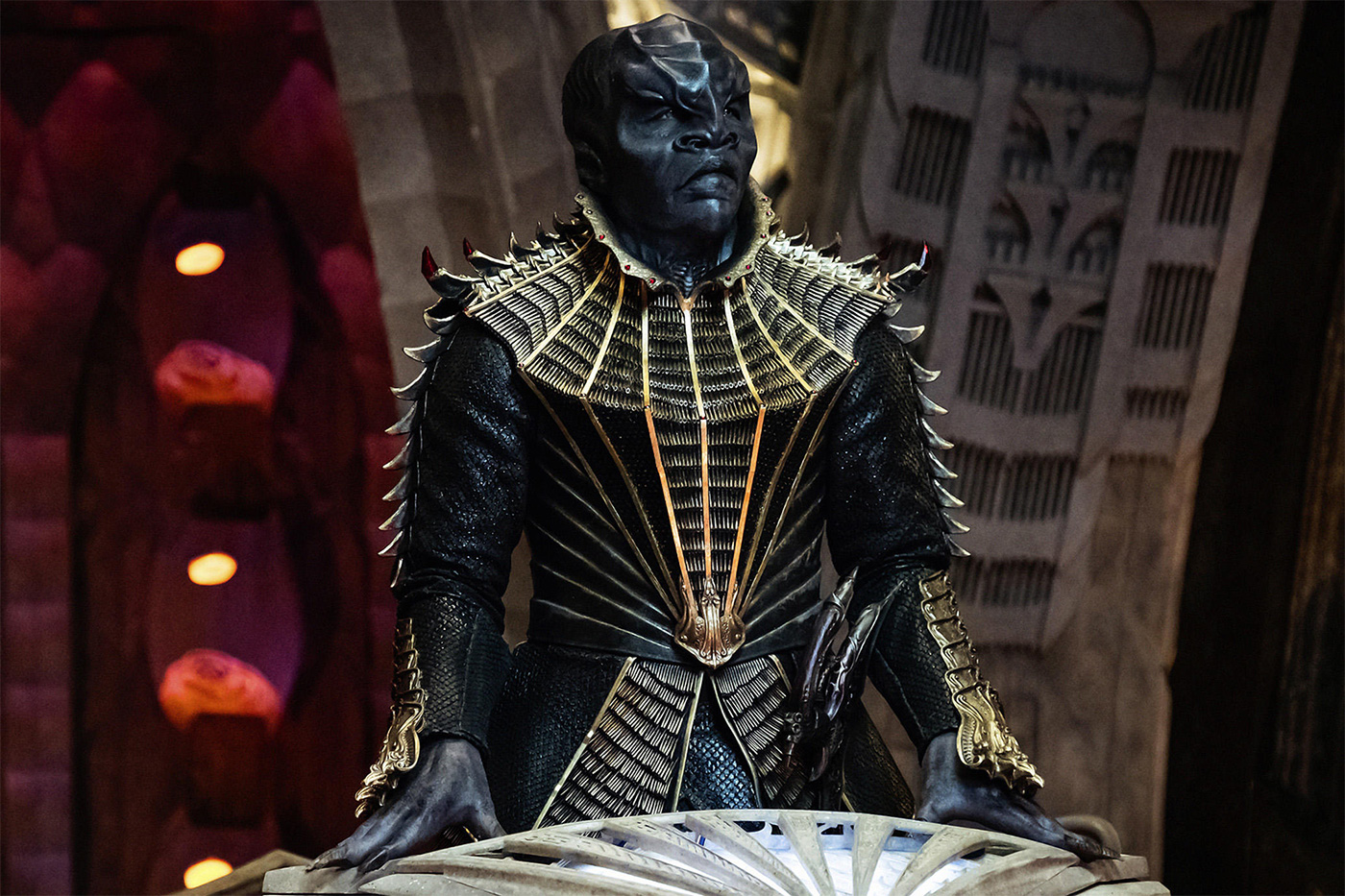
From a canonical perspective, Discovery’s portrayal of the Klingons is — not to mince words — ridiculous. In the original series, the Klingons were bloodthirsty and conniving, but they were also clever, persuasive and, once in a blue moon, even quick with a joke.
The subsequent five series built the Klingons’ characteristics into a complete culture. At their worst, Klingons could still be hardheaded, cruel and shortsighted. But they were also a proud warrior culture, complete with their own architecture, religion and language.
We learned that Klingons prize fairness, frankness and friendship; that they disdain dishonesty, and can even extend their respect to other races. They prize honor above all else, but honor comes in multiple forms — dying in battle, yes, but also staying loyal to friends, seeking adventure, exposing intrigue and even defending potential enemies in a court of law.
It’s hard to imagine Discovery’s Klingons doing any of those things. Unlike the austere, pragmatic ships of The Next Generation and Deep Space Nine, T’Kuvma’s flagship looks like a floating temple — even though longtime Trek fans know that Klingons reject such extravagance. T’Kuvma is obsessive about entombing his fallen officers — even though we know that Klingons consider a dead body to be an empty shell, and don’t care one way or another what happens to it after the death scream. (Props to Discovery for including the death scream, at least.)
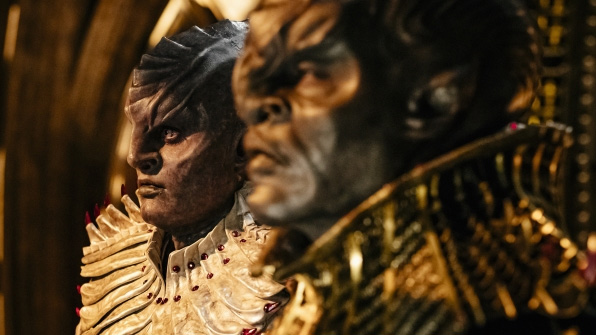
T’Kuvma’s Klingons are joyless, dour, militaristic villains who use “honor” as a smokescreen to justify their deception and brutality. We’ve seen Klingons like this before, but they’ve always been one of many factions — not the entirety of a race. By reducing the Klingons to generically evil conquerors, it’s robbed Star Trek of one of its most fascinating institutions, and fans of a nuanced antagonist.
I could go on, but the Klingons exemplify a bigger point about Star Trek: Discovery: For all of its merits, it just doesn’t feel that much like Star Trek. There’s no sense of optimism or (ironically) discovery; the Federation is good and the Klingons are bad, period; and the main focus of the show is an impending war. We’ve seen full-scale war before in Deep Space Nine, but it took four seasons to build up to the Dominion War, and there was plenty of exploration, moral complexity and humor along the way.
Enterprising young women
If Star Trek: Discovery sounds like all doom and gloom, it isn’t. Although it has a confused relationship with the Star Trek canon, it has a lot to offer when taken on its own merits.
As mentioned above, Yeoh and Martin-Green are instantly likable leads, and the chemistry between the two feels sincere. Doug Jones plays Lt. Saru, an affable officer from an intriguing new alien race, and James Frain steps into the late Mark Lenard’s shoes as Sarek, the Federation diplomat, father of Spock and mentor of Burnham. We haven’t met the bulk of the main cast yet, but everyone we’ve seen so far has given heartfelt, memorable performances.
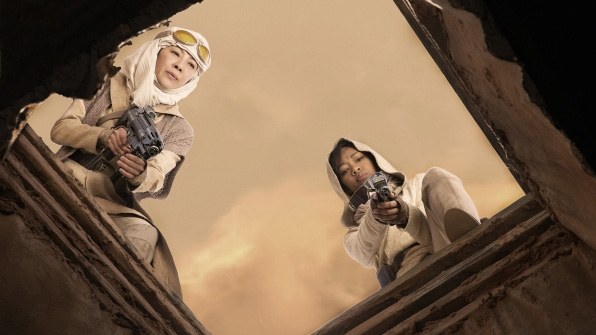
The show’s cinematography is also gorgeous, favoring skewed, Dutch angles and unconventional perspectives. While Discovery feels a little closer to the Abrams reboot films than the traditional laid-back bridge-and-corridor shots, it helps give the show a sense of urgency and excitement without leaning too far into pure action photography.
The show’s pacing never slows down too much, but also never gets into the breakneck territory of the Abrams films. We have a good, long time to get to know Burnham and Georgiou before they face their first big challenge. The plot unfolds organically, so by time the big ship battle comes (you didn’t think there’d be a Star Trek premiere without one, did you?), the audience is fully invested in it. Every character gets plenty of time in the spotlight, so their motivations, personalities and courses of action are clear. Every main character enjoys climactic triumphs and makes tremendous mistakes, which helps it avoid the blandness of, say, “Encounter at Farpoint” (the Next Generation premiere).
Simply saying that Star Trek: Discovery is a lot of fun to watch sells it short, because ambitious sci-fi television that relies on character development as much as action is extremely hard to pull off. But Discovery is almost always engrossing (or, at the very least, visually arresting), and almost never boring. The show doesn’t expect us to make any leaps of logic that the characters would not make for themselves. If Star Trek: Discovery were any other sci-fi show, the premiere would simply be a strong start for an exciting new franchise.
To boldly continue
Of course, Star Trek: Discovery isn’t any other show. It carries on its shoulders the weight of 51 years of history, and the (unrealistic, most likely impossible) expectations of millions of fans worldwide. Star Trek isn’t just a collection of solid sci-fi dramas; it’s also philosophy, science, technology, history, language and pop culture, condensed into an ongoing adventure about guys with pointy ears and big foreheads.
Given the serial nature of its story, Star Trek: Discovery will be impossible to judge until the season has run its course, and we get a more complete idea of what it’s going for. Perhaps it will be content to just tell a military sci-fi story about a hotheaded young officer who proves her worth; I hope (and believe) that it will eventually come to reaffirm the optimistic nature of the franchise, and demonstrate how we can pursue peace and find common ground with foreign cultures. For all of the alien fistfights, phaser shootouts and starship battles, Star Trek has always been a story of how we can all get along.
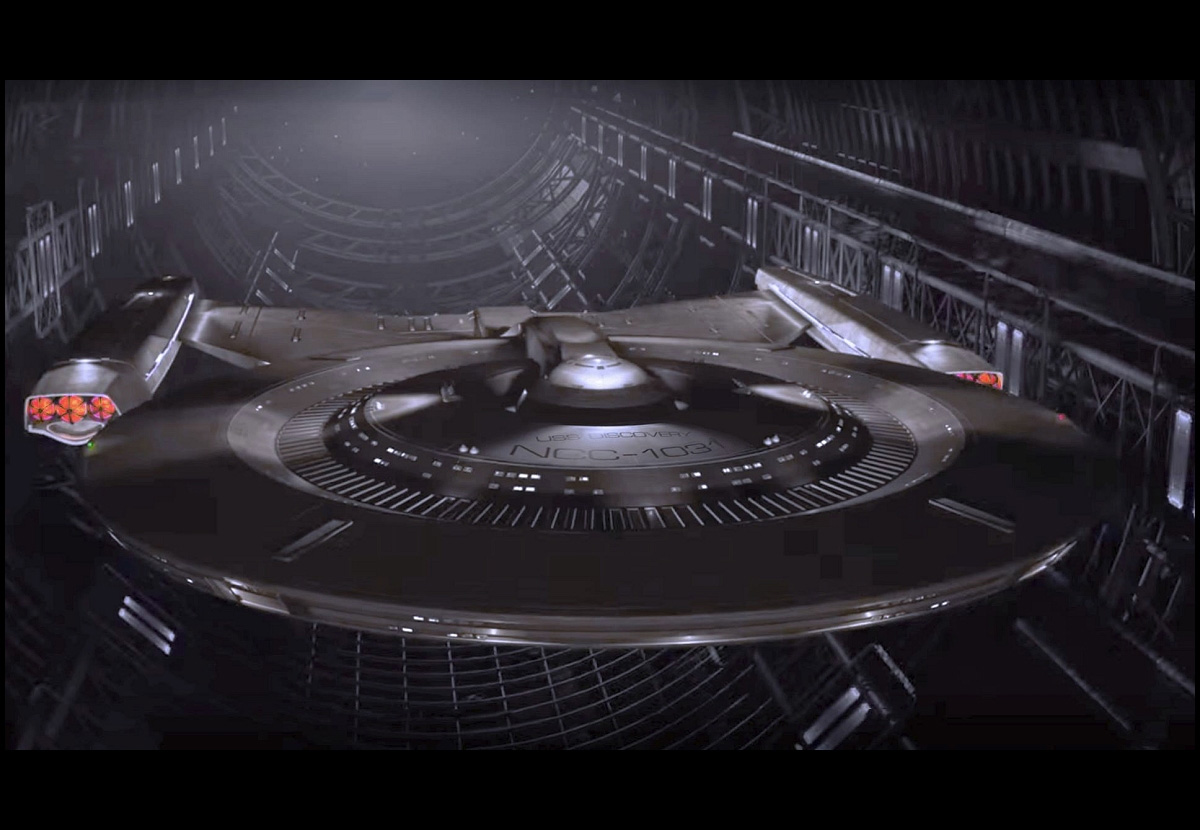
I’ll leave you with a brief comparison. The last Star Trek show to premiere was Enterprise in 2001. The series had its ups and downs, but “Broken Bow” demonstrated exactly how to premiere a show. Over the course of two episodes, we learned about the entire main cast of Enterprise, as well as their relationships to and with each other. We met a villain who would influence the course of the entire series, but we also followed a self-contained adventure that (re)introduced us to the Klingons. We had a gunfight and a ship fight. By the end of the episode, we knew exactly what the Enterprise’s mission was, and what the characters wanted to accomplish as they carried it out.
Coming off the premiere of Star Trek: Discovery, I know very little of that. I don’t know most of the central cast; I don’t know what the general arc of the season will be; I don’t even know what the titular ship looks like. Yes, I want to watch more — but partially due to the second episode’s cliffhanger ending, not the overall concept of the show.
Based on the strength of Martin-Green’s performance, the show’s beautiful aesthetic and the irresistible story hooks, it’s a given that I’ll continue watching the show, and I imagine that most other fans will feel the same way. Star Trek: Discovery is definitely good TV; I wish I could say for certain whether it was a good Star Trek adventure.
Credit: CBS
Marshall Honorof is a senior editor for Tom's Guide, overseeing the site's coverage of gaming hardware and software. He comes from a science writing background, having studied paleomammalogy, biological anthropology, and the history of science and technology. After hours, you can find him practicing taekwondo or doing deep dives on classic sci-fi.
-
richardsegal As a long time Star Trek junkie, I found it ok, but the contrived. It probably has possibilities. Everything can change, but there wasn't enough in the first episode to make me want to pay for the second. I'll wait for the re-runs.Reply -
56kbmodem "First: As a sci-fi/action drama, Star Trek: Discovery is nearly unparalleled. The story is intense, the writing is engaging, the cinematography is gorgeous, the special effects are top-notch, the cast is convincing and the pacing is brisk."Reply
IS THIS OPPOSITE DAY?? I think we watched a different show here.
The story sucked, writing was retarded, cinematography was headache inducing (45 degree angle all the time, wtd). -
clevelandraymond Also, why do the Klingons look like the builder's from Alien's prequel, Prometheus? Did they hire the same CGI company and to save money they said, "F' it... Just put ridges on the Alien's builders and we'll call them Klingons!"Reply -
aslagle You know, for it to be good sci-fi/action, it needs to get at least part of its science right. Gotta love the optical beacon that calls ships from "across the galaxy" (their words, not mine) in a matter of hours? A water table that was lowered due to a drought, but still pushes water up to a well head when a hole is drilled? People who "are too small to be noticed" on a planet's surface, but a design scratched using footprints is? Too many items in the first episodes seemed to be of the "hey, this would be cool, let's include this" variety, regardless of whether it made sense or not.Reply -
gdmiller004 The show was good, but putting it on a separate streaming system is bad. Did you happen to check out the terms and conditions that go with this service? There is a lot about what advertisers can do to track you with cookies and internet beacons I think they called it so they can collect your history and focus their adds at you. They also say that is is possible that not every 3rd party who has your data will be listed in a way that easily allows you to opt out. So buyer be aware. I would watch this on CBS, but sadly my email is already filled to the brim with unwanted advertisers and I don't need more on my web pages. Because of this I am passing on the series.Reply -
teryharned Long time trek fan. This show is NOT part of the Trek universe. It's missing one of the main characters, the Enterprise ship. The main characters are boring more due to the writing than the acting. The sets are great. but the reviewer was totally correct in his review of the Klingons and their sets/culture. The Trek universe has always featured strong captains and crew. This crew is pedestrian, again due to the writing. I wouldn't spend one cent to view the series when it moves to CBS's pay tv channel.Reply

